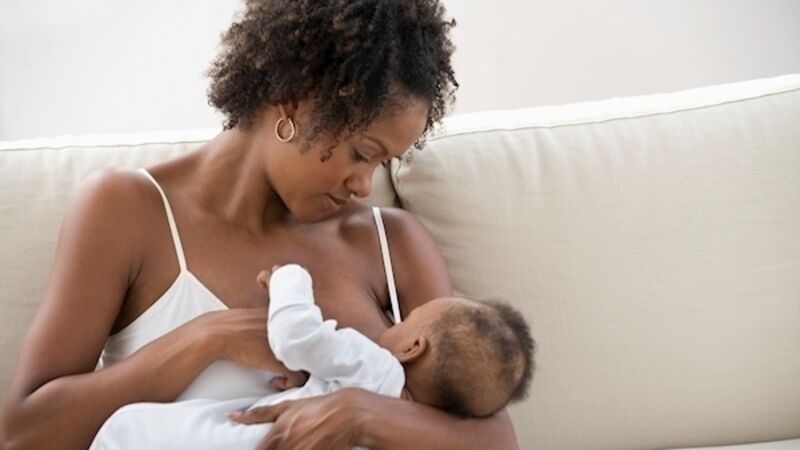Mother's touch: Skin-to-skin contact and breastfeeding help newborns to thrive

hears about the benefits of breastfeeding.
SKIN-to-skin contact for at least an hour immediately after birth helps get breastfeeding off to a good start — that is the message from the HSE during National Breastfeeding Week which continues until Monday.
HSE national breastfeeding coordinator Laura McHugh says 86% of all healthy-term babies receive skin-to-skin contact after birth and the practice is widespread across maternity services.
She explains that most babies will naturally seek out and feed at the breast if they’re placed unclothed directly onto their mother’s chest immediately after birth for at least an hour.
Skin-to-skin contact also helps mothers to recognise and respond to their baby’s signals. It stimulates release of hormones that support bonding and breastfeeding.
While breastfeeding rates here are 10% higher than 10 years ago — with 60% of babies breastfed on leaving hospital — McHugh says we fall well below international comparisons.
“We’d like it to be more,” she says, pointing to “exemplar” countries like Australia, where there’s a 96% breast feeding initiation rate — almost all babies leaving hospital are breastfed. In the UK, the figure stands at 81%, in Scotland it’s 75%.
Of the six in 10 babies being breastfed when leaving Irish hospitals, five of are exclusively breast-fed and the other one in six has breast-milk topped up with formula.
"We’re striving to get mothers breastfeeding exclusively and for longer — both of which improve benefits for baby."
How do you know if your baby has latched on properly?
— HSE Ireland (@HSELive) September 26, 2019
Here is a great video on breastfeeding positions and showing the latch. #Watch to learn more to help you on your breastfeeding journey #HSEMyChild pic.twitter.com/qLnZ1Q65k7
McHugh says a barrier to breastfeeding here is the “formula culture” and the misconception that formula is “as good as” breast-milk.
"There’s unequivocal research showing breastmilk is unique and its ingredients cannot be replicated in formula.”
McHugh says for many women, breastfeeding is a skill that takes time to learn.
The early days can be very challenging. It can take a while to get into a rhythm but it does get better and it’s generally a positive experience once you get into that rhythm.
The HSE’s new website mychild.ie is a go-to resource for breastfeeding mothers, mums-to-be and families. It includes extensive breastfeeding information/videos/guides and the ‘Ask our Breastfeeding Expert’service — plus wider pregnancy and child-health information.
National Breastfeeding Week runs until Monday. For events in your area, contact your local breastfeeding support group — details here.





